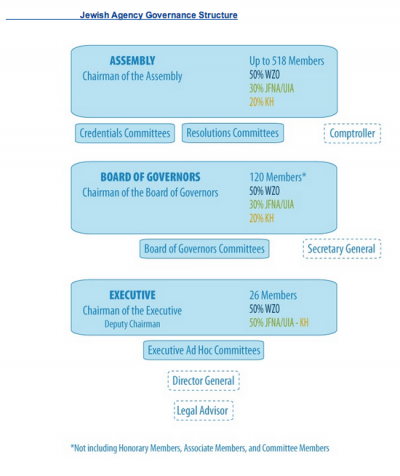Israeli National Institutions
The National Institutions are quasi-governmental or para-statal institutions in Israel that have significant powers but which are also constituted in part by zionist organisations outside Israel. Each of the organisations pre-dated the creation of the state of Israel in 1948 and they formed the core of the transnational zionist movement the main aim of which was to create a Jewish state in what was then British Mandate Palestine. After the creation of Israel in 1948 the Institutions remained active being assigned legal powers by the Israeli government as well as retaining branches and affiliates in many countries around the world.
They include the following organisations, all of which are based in the same building complex in Jerusalem:
- World Zionist Organization (Created 1897. Added 'World' to its title in 1960)
- Jewish National Fund (Founded at the Fifth Zionist Congress in Basel in 1901)
- Keren Hayesod - United Israel Appeal (Created at the World Zionist Conference in London on July 7–24, 1920)
- Jewish Agency for Israel (Created at the 16th Zionist Congress, held in Zurich, Switzerland in 1929)
Contents
Relations between the national institutions
Governing the Jewish Agency
The World Zionist Organization is allocated 50% of the votes on the governing bodies of the Jewish Agency. Keren Hayesod is allocated 20%. The US based JFNA/UIA has the remaining 30% of the votes - It is the US equivalent of Keren Hayesod which does not organise separately in the US.[1][2]

Resources
- Wikipedia National Institutions House
- Factbase National Institutions
- Factbase Israel: World Zionist Organization and the Jewish Agency
Notes
- ↑ 1.0 1.1 Jewish Agency Jewish Agency Governance Structure. Accessed 16 February 2014.
- ↑ Jewish Agency Board of Governors, accessed 23 May 2008
